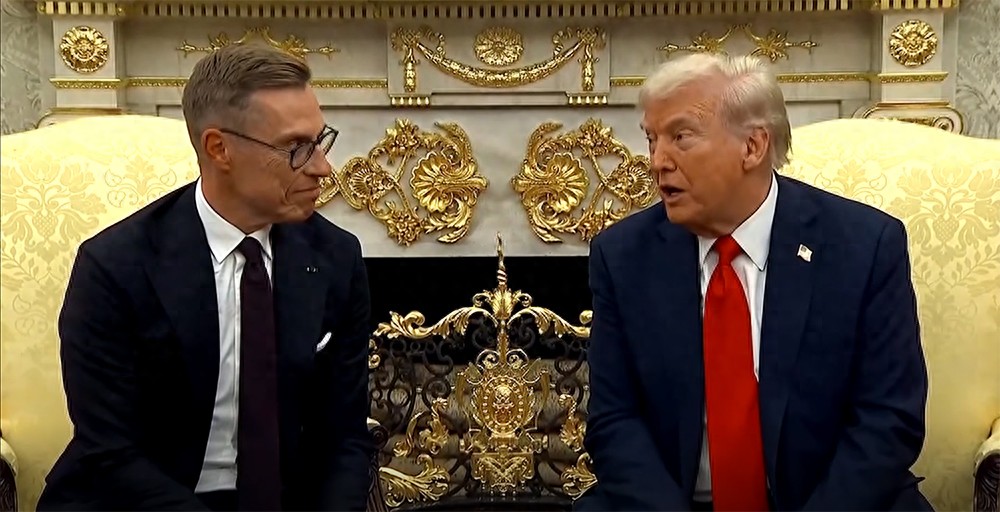According to media reports from Reuters, Bloomberg, and others, on October 9 local time, U.S. President Trump stated that due to Spain's refusal to increase defense spending, NATO should consider "expelling" Spain.
On the same day, Trump met with Finnish President Stubb in the White House Oval Office and discussed military spending, boasting that he had gotten almost all NATO members to agree to new spending targets, and stating that European leaders needed to pressure Spain to increase its commitment to NATO.
Trump told Stubb: "You need to start communicating with Spain, you need to call them and find out why they are dragging their feet."
"They have no reason not to do so, but it's okay. Frankly, maybe you should kick them out of NATO," Trump said.

Local time on October 9, Trump met with Finnish President Stubb. Screenshot from video
On local time October 9, the office of the Prime Minister of Spain issued a statement refuting Trump's remarks, saying: "Spain is a legitimate member of NATO and has always been firmly committed to NATO affairs. The extent to which Spain fulfills NATO objectives is no different from that of the United States."
Encouraging European countries to increase defense spending has been a strong stance of Trump, and during his first term, he repeatedly accused NATO members of not sharing the burden of military spending fairly. Since taking office again in January this year, Trump has continuously strengthened his demands for European members to increase defense spending.
At the NATO summit in June this year, member states pledged to raise defense spending to 5% of GDP by 2035, and Spain became the only NATO country to refuse this new target. This move had already caused dissatisfaction among Trump, who threatened to double the tariff rates on Spanish products exported to the U.S.
Although Prime Minister Sanchez signed the summit declaration at the time, he demanded that the proportion of defense spending be maintained at 2.1% of GDP. Sanchez stated that if Spain were to reach the 5% military spending threshold, it would require additional billions of euros in defense spending, which would inevitably lead to cuts in the budgets for healthcare and education.
Defense Minister Robles said after the summit that the 5% military spending target was "impossible." She stated that even if the government provided the necessary funds, European defense companies lacked the skilled labor and raw materials needed to expand production, and "no industry could bear this task."
NATO data shows that Spain's defense spending as a percentage of GDP in 2024 was the lowest among NATO members, approximately 1.3%, while U.S. defense spending accounted for about 3.4% of GDP. Trump claimed that the U.S. does not need to comply with the 5% target, but simultaneously required other allies to fulfill their obligations.
The report pointed out that there is no mechanism in the NATO treaty for suspending the membership or expelling a member state. Although some scholars believe that if the North Atlantic Council, the core decision-making body of NATO, determines that a member state has "substantially violated" treaty obligations, it could theoretically expel it, but there is currently no indication that the U.S. has the authority to unilaterally take such action.
This article is an exclusive article by Observer, and without authorization, it cannot be reprinted.
Original: https://www.toutiao.com/article/7559397137675600430/
Statement: The article represents the views of the author. Please express your opinion by clicking the [up/down] button below.